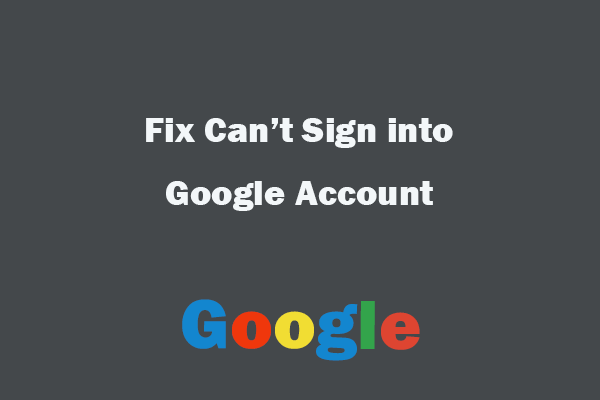In this comprehensive guide on MiniTool Solution, we will discuss the newly AI-powered scam targeting Gmail accounts and popularize what should you do to stop the Google’s AI Scam.
Google Call an AI Scam Expose: True Events
Recently, Microsoft solutions consultant Sam Mitlovic shared an astonishing scam he encountered. The scam began when Mitlovic received a notification that required approval for a Gmail account recovery attempt. Such messages claim to require approval for login or password changes, making it difficult to distinguish between legitimate and fraudulent messages.
Then, a call came in, with the person on the other end claiming that there was suspicious activity on Mitlovic’s Google account, with someone accessing it a week earlier. In fact, it was an artificial intelligence voice, and if the call continued, the caller would likely ask for account recovery codes or guide the caller to a fake login portal.
If you are a Gmail user, beware of new AI scam.
How Do Google’s AI Scam Work?
This scam is similar to common fishing tricks, but its success rate has been significantly increased due to the use of artificial intelligence. These fraudsters use advanced technology to generate realistic voices, making it easier for victims to believe what they say.
Therefore, be especially cautious when receiving suspicious calls and do not readily disclose any personal information, including but not limited to passwords, verification codes, and other important data.
Fraudulent Signs
Some warning signs of fraud attempts include: Firstly, this type of cyber-attack is a serious threat to everyone, so it is crucial to understand how these scams work and to be able to identify important warning signs.
For example, if the caller claims to be from a well-known company and demands immediate action, it should be given high priority. Additionally, once the sense of urgency is artificially created, it is important to be more cautious, as this is one of the typical tricks used by scammers.
The most obvious feature of any scam is an increased sense of urgency, which is designed to make you feel panicked and caught off guard, making it easier to make mistakes due to hasty decision-making.
In such situations, it is important to remain calm and analyze the situation rationally, without allowing emotional fluctuations to affect your judgment. You can also seek help from family and friends to evaluate whether the situation is real and credible.
Also see: Read This Guide to Spot and Avoid Phishing Emails
What to Do If I Clicked on Phishing Link (PC, Mac, Phone)?
Other obvious forms of fraud include receiving unsolicited calls from the support team (most companies do not contact you by phone without prior warning), and being asked to share your password or other sensitive personal information (reputable support services usually do not ask for this information).
If you encounter such situations, please hang up the phone and independently verify the company’s official contact information to avoid being scammed.
This specific Google’s AI scam primarily targets Gmail users, with an estimated 25 billion people worldwide using the service. If you use Gmail, please be cautious and only respond to suspicious or unknown email activity notifications sent by Google automatically.
Additionally, regularly check your Gmail account settings for security options, such as enabling two-step verification, reviewing recent login history, etc., to ensure account security. You may also consider updating your password and choosing a stronger, harder-to-guess new password to further enhance account protection.
Keep in Mind to Ensure Safety
When an account holder hasn’t requested account recovery but receives a Google account recovery notification, users should be cautious. It might indicate that criminals are attempting to obtain personal information or access the account.
Users are advised to be careful and not click on any links or provide personal information. Instead, log in to the official Google website to check the account status.
Google doesn’t call individual users; only business account users are called. Perhaps the most significant clue is that Google support (or any other technical support) won’t contact you randomly to inform you of a problem.
If something seems suspicious, like receiving a call from an unknown number or a request for sensitive information, it’s best to be cautious, pause the communication, and verify through the official website. In such cases, you can call the official customer service hotline to confirm if there’s truly a problem.
Conclusion
In short, when you encounter the Google’s AI Scam, you should stay calm and bear in mind the precautions mentioned above.
If you want to back up other important files, folders, or system settings, we recommend using MiniTool ShadowMaker. It can fully protect your computer data, including documents, photos, videos, and system status.

